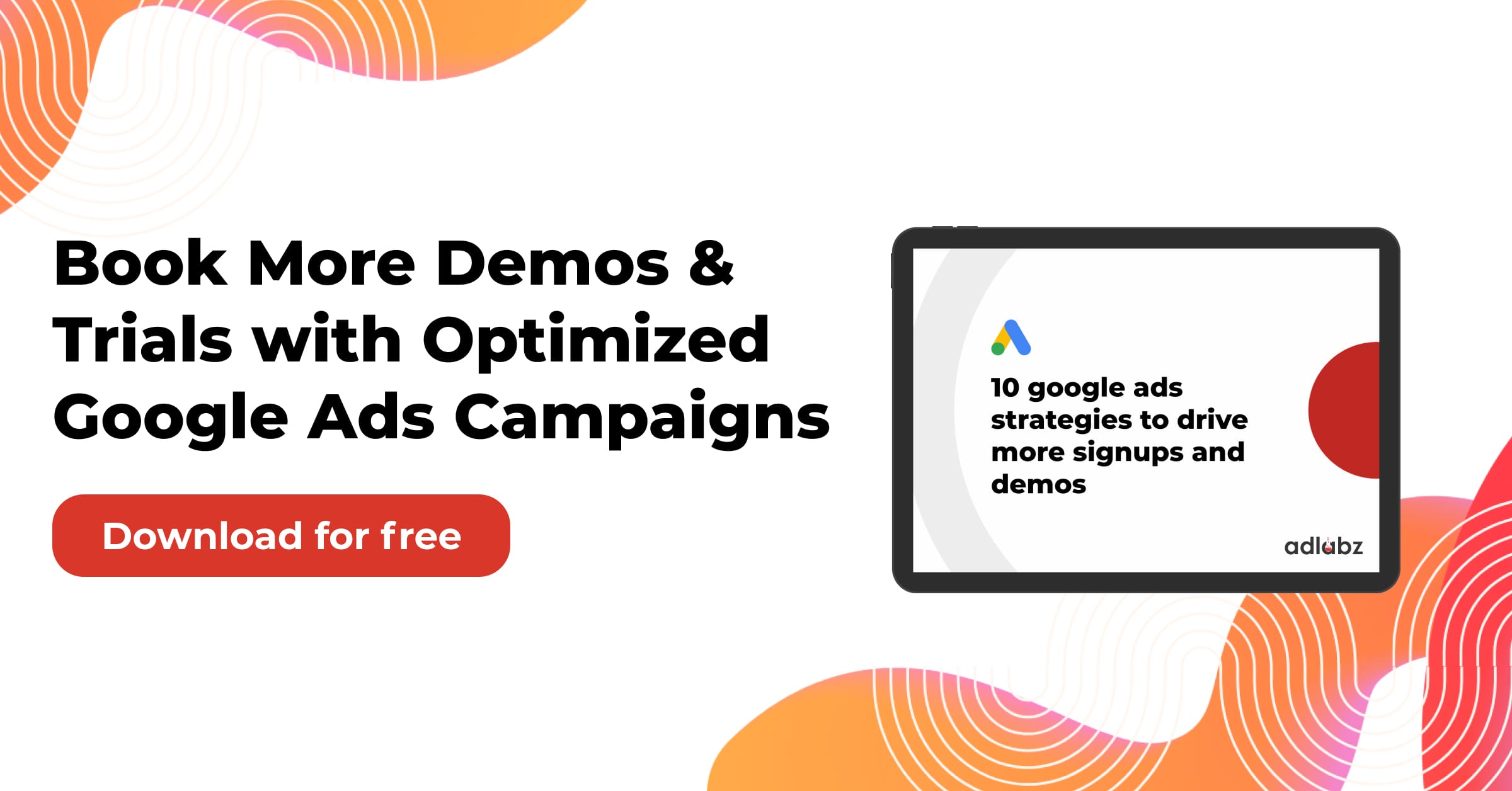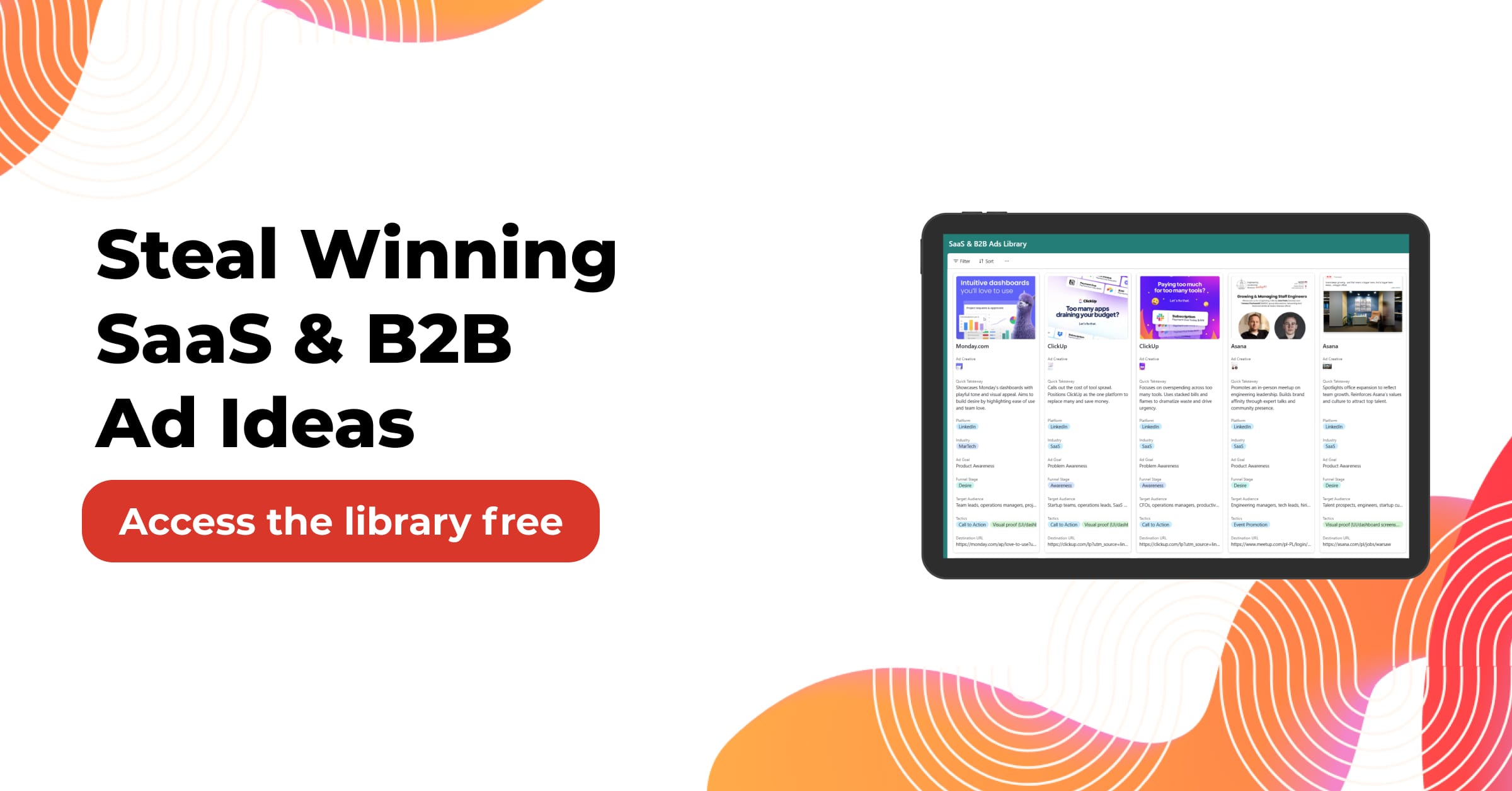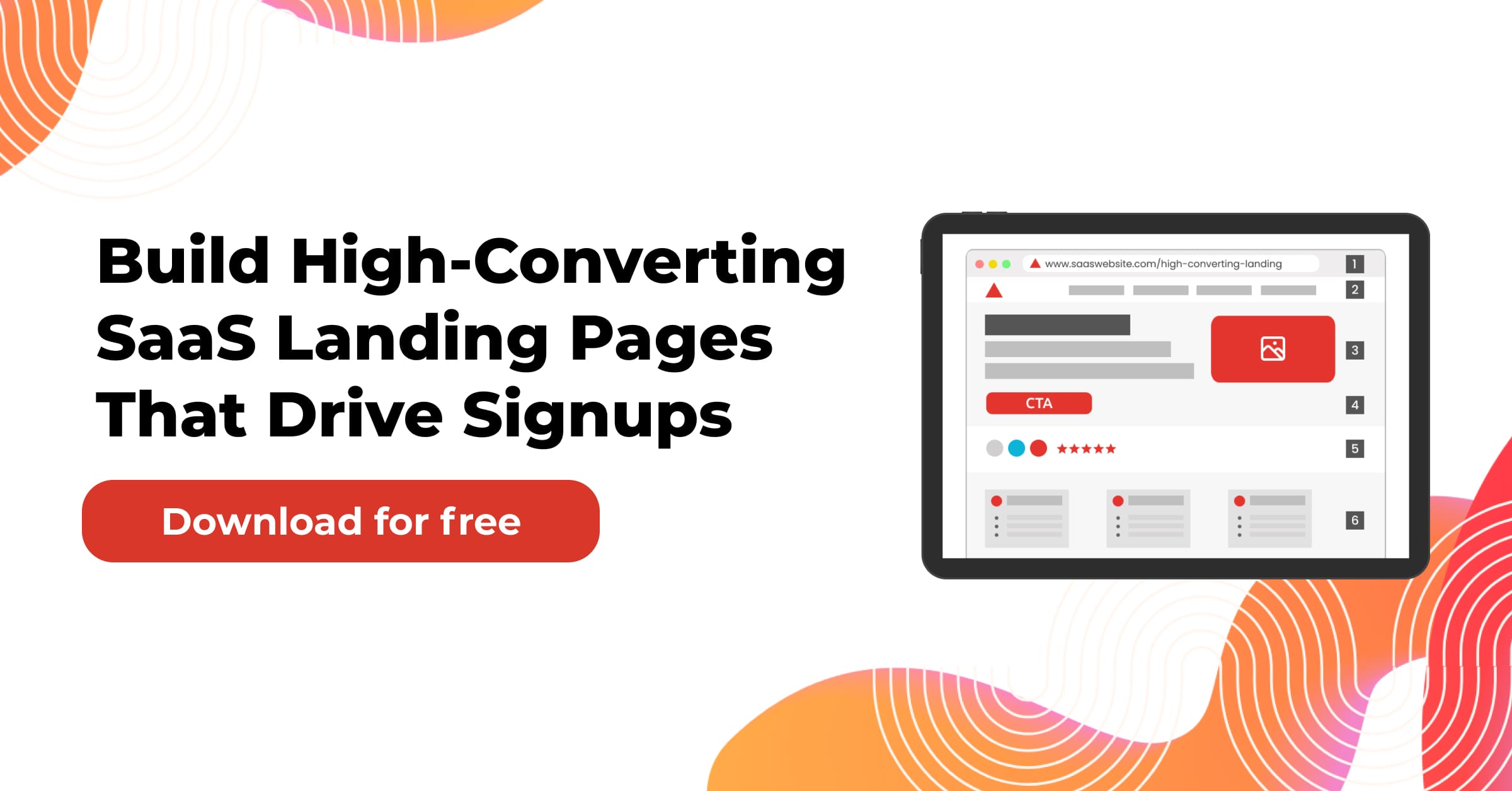All it takes is the right keyword strategy to get maximum conversions on your Google Ads. This article will lend you some insights on strategies for the right Google Ads keywords for maximum clicks.
The all-inclusive keyword strategy is right ahead so, gear up to improve your ROI.
Skip To:
Result-Driven Google Ads Keywords For Maximum Clicks
A Deep Dive into the Trade-Offs Between Search Volume and Keyword Count
The Importance of Categorizing Keywords by Search Volume: High vs. Low
Comparing High-Volume Keywords and Low-Volume Keywords
Factors to Consider When Choosing the Right Keyword Search Volume
Are You Choosing Google Ads Keywords Without Considering These Important Factors?
Choosing the right keywords for your Google Ads campaign
Keywords and Conversion Rate: What’s the Link?
Going Beyond Search Volume: Exploring What More Can You Do To Run A Successful Google Ads Campaign
Guidelines for Making the Most Effective Ad Groups in Google Ads
The Importance of Keyword Relevance and Reach in Digital Marketing
A Well-Rounded Keyword List Is A Prerequisite For Success
How To Balance Between Keyword Reach and Relevancy?
Understanding the Different Keyword Match Types for Effective PPC Campaigns
We’ll help you get started quickly and stay on top of game in the cutthroat digital environment by honing in on the right set of keywords.
You can’t use just any keyword & expect customers to land on your website right away. Competitors have twisted the market more now than ever. You’ll meet different competitors from around the world with similar interests & target audiences. This makes the use of traditional and easy ways to attract customers more and more obscure and irrelevant.
A great PPC campaign depends on many things like CTA, landing page, ad copy, etc. But there’s something that comes first—keywords.
Before drafting a stellar landing page or ad copy, you need to search for the right Google Ads keywords to target the right audience. Surely a real estate agent wouldn’t want to entertain a customer looking for home repair services.
Time is still the most precious currency of all. Filtering out every empty lead is a waste of time and money too, one has to smartly plan things out. One way to do so is to list down the right keywords for your Google Ads campaigns. This helps you reach the relevant audience with a higher possibility to convert.
Result-Driven Google Ads Keywords For Maximum Clicks
Here is a comprehensive guide that will help you choose high-performing & result-driven Google Ads keywords for maximizing clicks, conversions, and ROI.
A Deep Dive into the Trade-Offs Between Search Volume and Keyword Count
When selecting the right keywords for your Google Ads campaign, it’s essential to understand the search volume & keyword density. The total number of times a keyword is searched for in a month is referred to as keyword search volume.
To make your investment profitable, it’s crucial to use high search volume keywords that receive a significant number of searches. But placing bids on keywords with tons of search traffic might be costly and not necessary at all times.
Targeting several low-volume keywords rather than one high-volume term can be one way to tackle this. With this strategy, you may reach a wider audience & test new keywords at a lower cost. You can successfully reach more people by showing the same ad to different folks who used different search phrases.
This method of placing bids on several low-volume keywords reaches enough users & doesn’t cost too much. Even while high-intent keywords are likely to result in conversions, they are expensive & will decrease your search traffic significantly.

An example might be helpful: People are more likely searching “types of roofing materials” than “buy a new roof now.” Although “buy,” which has strong intent, is likely leading to more conversions, its search volume isn’t very high—making it pricey to bid on.
One high-volume keyword (with a search volume of 10) can be as good as 10 low-volume keywords (each with a search volume of 1). In the end, both strategies—using few high-volume or many low-volume ones—are equally efficient.
The search volume, keyword density, and audience intent must all be carefully considered when shortlisting the right keywords for your Google Ads campaign. A balanced approach using both high and low-search volume keywords helps reach a larger audience & improves ROI.
Remember, choosing correct keywords is key for success in your Google Ads campaign.
The Importance of Categorizing Keywords by Search Volume: High vs. Low
Crafting the perfect Google Ads account structure can be tough work that requires careful thought. Your business objectives must be carefully considered when picking your keywords, ads, and landing pages.
Organizing campaigns doesn’t have a one-size-fits-all approach since it depends on many things like budget, region, industry & business size.
Many marketers get caught in debates about competition vs. search volume when picking keywords. Remember though: High-intent ones are most likely turning into conversions.
Let’s check some examples:
- Best laptops” having 100,000 monthly searches means average searches by 100k folks.
- A long-tail keyword “best gaming laptop under $1,000,” having 1k monthly searches means around 1k folks looking for that specific phrase each month.
- A brand name like “Nike,” having 5 million monthly searches means it’s searched by 5 million individuals each month.

For Google Ads or improving SEO on websites—search volume plays an important role. High search volume terms might be tough ranking & costly bidding but show great demand & possible customers.
Though less competition might exist for low-search phrases but fewer potential visitors too! It’s vital striking balance between relevancy, search volume & competition while choosing words.
Ultimately—the effectiveness of paid-search efforts hinges upon selecting apt account structure + words used targeting ads! Avoid getting too caught up discussing volumes vs competitions; instead focus identifying high-intent words supporting company-goals aligned!
Comparing High-Volume Keywords and Low-Volume Keywords
Even though search volume matters very much—it’s not everything alone! High keyword volumes indicate more searches meaning more information sought from Google about related topics.
High-volumes increase online visibility providing better organic rankings by engines; yet costs per click tend increasing + clicks possibly irrelevant running no business value even sometimes!
But lower-volumes although not bringing lots traffic—their hits often show unmet necessity/customers wanting certain goods/services happening hence frequently providing cheaper qualified hits fitting offering ideally!
Balancing higher + lower -volumes maximizes spending—tools like Keyword Planner assist seeking suitable ones gauging performances also!
Focus creating compelling landing pages aligning user expectations crafting ad copies matching word intentions thus raising conversion rates + boosting ROI eventually!
Factors to Consider When Choosing the Right Keyword Search Volume
Nailing down a successful Google Ads campaign requires selecting the right keyword search volume for your business. With so many choices, how do you determine which keywords to use? Here are some key considerations for finding the best keywords for your Google Ads:
Tailor Keywords According To Your Niche
Remember, not all keywords are the same. What works in one sector might flop in another. For example, “running shoes” will get more hits than something specialized like “legal counsel.” Make sure keywords are niche-specific & relevant.
Assess Keyword Competition
Understanding keyword competition is vital for a winning Google Ads campaign. You’ve got no excuse to skip this with plenty of free & paid tools available. High search volume keywords can drive traffic, but they’re often pricey and competitive. So, striking the right balance is key to your campaign’s success.
Think about your buying intent
Think about how ready folks are to buy when they search. For a broad awareness campaign, spreading the word about your brand matters most. High-intent keywords may not be the focus here. But if you’re running a direct response campaign, avoid wasting money on people not ready to purchase. Instead, choose high buying intent keywords.
Analyze the Keywords of Your Competitors
Researching your rivals’ keywords can also be helpful. See what’s bringing traffic to their site and use those insights to improve your own strategy.

Think About Where Your Target Audience Is Located
Where your audience is based can affect keyword searches. For instance, if you want a local crowd, use terms that have lots of local searches. On the flip side, if targeting a national or international audience, broader keywords with higher search volume may be necessary.
Knowing that finding the right term search volume involves both art & science will help you make informed decisions for maximizing ROI.
Are You Choosing Google Ads Keywords Without Considering These Important Factors?
Your Google Ads need the right keywords desperately. Though other criteria matter too, many advertisers obsess over search volume alone. It’s time to start focusing on these essential aspects if you aim for optimal results with Google Ads campaigns.
High-volume keywords can bring more traffic but are usually costly & competitive. Balancing search volume and competitiveness is crucial. Research & analyze keyword competition before committing to keywords using tools.
Understanding your target audience can uncover unique keywords your competitors might miss. These fresh keywords can give you a competitive edge and boost success chances.
Simply going by keyword search volume might cause you to miss valuable opportunities to increase conversions and revenue. Considering these factors alongside search volume lets you craft highly successful campaigns with outstanding results.
Choosing the right keywords for your Google Ads campaign
Selecting suitable keywords for Google Ads can be tough but essential. It requires a strategic approach & clear understanding of your target market. Using various keywords in an ad group boosts success chances.
For example, if selling shoes online, don’t just stick with “running shoes.” Include combinations like “trail running shoes,” “men’s running shoes,” “women’s running shoes,” etc., to reach a broader audience & improve conversions.

Using too many low-volume keywords can hurt CTR and raise CPC costs while relying only on high-volume ones leads to fierce competition & higher CPCs.
Google suggests 10-20 keywords per ad group to capture potential buyer phrases while searching for products/services. However, managing lots of low-volume keywords across multiple campaigns can be exhausting.
In such cases, employ smart tactics & tools to analyze keyword data, select samples intelligently, and gather insights for better campaign optimization. This tech-savvy approach keeps you ahead of competitors and enhances ROI.
Too few or too many keywords impact campaign success differently. Optimizing ad groups wisely boosts CTR and conversion rates effectively.
Keywords and Conversion Rate: What’s the Link?
Finding the perfect keywords isn’t always easy—it’s like finding a needle in a haystack! Even with high search activity, some keywords don’t convert well; conversely, lower search volumes don’t mean lower conversions necessarily.
Long-tail keywords with specific intent may increase conversion rates despite lower search volumes compared with broader terms—essential for leading customers through different sales funnel stages effectively matching audience needs/preference better boosts overall conversions rates significantly:
Conversion rate = (conversions / total visitors) * 100%
Diverse ad group keyword mix improves conversions as total visits play crucial roles too:
For instance:
If selling sportswear—don’t only use popular “running shoes.” Include targeted long-tail options like “best running shoes flat feet” or “women trail running shoes” ensuring focused intent moving customers further down sales funnel from high-intent motivated standpoint
The right keyword selection lays initial groundwork; yet ultimate conversion rate relies heavily upon landing page effectiveness combined within seamless relevant user experiences fulfilling their core searches entirely.
Going Beyond Search Volume: Exploring What More Can You Do To Run A Successful Google Ads Campaign
Targeting high-volume keywords alone won’t guarantee the success of your Google Ads campaigns. Sure, the number of searches matters, but it’s not only thing to focus when picking keywords for ads.
To make sure that efforts reach the right audience, bring quality clicks and leads ultimately drive conversions, there are actually bunch of extra factors you to consider. Let’s dig into these factors so you can choose your keywords smartly.
- CPC of the keyword: If the keyword has a high CPC but a conversion rate, it might not always the best option. Think lower CPC and lower volume keywords that can still generate leads & conversions while staying within your budget.
- Market concentration: Because your target audience may be narrowly focused, there may not be many impressions for some keywords. If long-tail keywords are where you’re headed, don’t let low numbers throw you off.
- Performance of a keyword: Pay attention to the conversions a keyword generates rather than just CTR and CPC. No matter how people are searching for a keyword, if it isn’t generating quality clicks or leads, it is useless. Look at improving conversion rates and find which keywords bring in the highest earnings.
- Long-tail keywords: Use long-tail to focus your target audience and create ads and landing pages that are more targeted. Since fewer businesses will be eyeing these long-tail keywords, you might outpace competitors in attracting customers.
- Cost of your Offer: As the price rises, so does what you can afford to spend on ads. It might not be wise to place big bids on keywords if your product is affordable since there might not be enough profit margin.
- Your Google Ads’ goal: Think about what you’re aiming for with your campaign. Total conversions won’t be the key indicator if you’re raising market awareness. Some campaigns excel in long-term sales processes while others aim at visibility. Be extra careful with ad costs & how they affect your bottom line whether you offer one-off products or cheaper stuff.
- Keyword competition: Although shorter keywords are very competitive, the ROI may be minimal. To lower competition costs & raise your chances of ranking higher in search results, consider focusing on less competitive long-tail keywords.
- Relevance: Pick terms relevant to your business, goods, or services. You might attract traffic
that won’t convert if you use unrelated keywords—wasting your ad budget. - Seasonality: Consider how seasons impact your keyword choices. For instance, certain terms spike during holidays while others drop in summer.
- Geography: Think about using your keywords to target specific geographic areas. This can boost targeted traffic and help you save money on clicks likely to convert.
Guidelines for Making the Most Effective Ad Groups in Google Ads
Ad Groups are key pieces of your Google Ads campaigns & their success depends greatly on how well you organize them. Structure campaigns and ad groups to maximize ROI from those keywords.
Here are some best practices to follow when creating ad groups:
Begin by planning out your campaigns and ad groups: Arrange ad groups so data aligns with campaign goals early on—don’t wait till the last minute.
Use different campaigns: Use new campaigns for significant differences in geography or budgets instead of different ad groups.
Keep things simple: Targeting the same areas? Want one budget? Combine efforts into one campaign using multiple keywords—simplifies life and avoids mix-ups later on.
Narrow theme: For each ad group, use a narrow theme with specific keywords in headlines, ad content & landing pages making them more valuable to searchers and boosting click chances.
Have three ads or more per ad group: Test at least three ads per ad group to find what works best for conversions—try different angles & see which combinations work well at better prices & rates.
Negative keywords: Use negative keywords to prevent irrelevant clicks saving money & ensuring only qualified prospects see your ads.
Regularly assess and enhance your efforts: Review campaigns often seeing what’s working and dropping non-performers while bumping up winners’ prices.
Keep an eye on your campaigns’ quality scores: Google uses “Quality Score” as an indicator of your ads’ value; improve scores by boosting click-through rates & tweaking landing pages accordingly.

It’s crucial how you set up campaigns & ad groups—by sticking to these practices you’ll build better, cost-efficient & targeted campaigns enhancing performance overall with higher ROI so give these tips time to show results watching them thrive!
The Importance of Keyword Relevance and Reach in Digital Marketing
Keyword Relevance: What Is It and Why Does It Matter?
The “keyword relevance” means how important a keyword is to meet your marketing goals. By sorting your keywords by relevance & ranking them, you can make campaigns that really speak to your audience.
Why is keyword relevancy so vital?
Well, it helps optimize campaigns, boosting performance and ROI. It’s all in the details (as they say), and picking the right keywords can make all the difference.
Keyword Reach: What Is It and How Does It Affect Your Campaigns?
“Keyword reach” means how big an audience you can reach with a specific keyword. High-volume keywords hit more people but are also more competitive and need higher bids. When planning campaigns, balancing relevance & reach is key for better results.
How does keyword reach affect your campaigns?
? It helps attract a broader range of customers & raises brand awareness. Using both general and brand-specific keywords lets you bring in new folks while keeping current ones happy.
Keyword relevance is critical when determining an ad’s quality score. When an ad matches user intent and gives relevant info, it scores higher. This means better ad positions and lower costs, leading to improved performance and ROI.
A Well-Rounded Keyword List Is A Prerequisite For Success
Keeping a keyword list that covers both generic and branded searches is essential. You can’t have it all, as they say. But with a mix of generic & branded keywords, you can boost brand awareness while attracting new customers.
Your campaigns’ success hinges on the relevance and reach of your keywords. Pinpointing the most relevant ones lets you create tailored ads that resonate with your audience, yield higher ROI, and drive business growth.
How To Balance Between Keyword Reach and Relevancy?
To attract quality visitors to your website, find a balance between keyword reach & relevancy. Also, consider brand awareness when picking keywords to maximize reach.
For newcomers to advertising, creating ad groups with about 10 keywords each is recommended. Each group should have 6-8 exact match keywords with the highest bid, followed by 1-2 modified broad & phrase match keywords at 20% less than the top bid. Include 1 broad match keyword at 50% of the top bid.
This layout ensures that most of your budget targets high-level queries from the start—helping draw in targeted traffic & allowing for some free keyword research opportunities.
Over time, enhance your list with new phrases & negative keywords. Removing unnecessary traffic optimizes your list for the ideal balance between reach & relevance. Finding this balance leads to higher quality scores and ROI.
As your business grows, an updated keyword list will always be useful. This strategy helps maintain relevance and keeps marketing sharp by following trends & continually refining your list—making sure campaigns stay optimized to keep ahead of competitors.
Understanding the Different Keyword Match Types for Effective PPC Campaigns
Knowing various keyword match types is crucial for building a successful PPC campaign. These types determine how search engines use user queries to match the terms you bid on. Choosing the right match type strikes a balance between reach & relevance so that your ad reaches the right people.
There are four kinds of keyword match types: Broad Match, Modified Broad Match, Phrase Match, and Exact Match.

Broad Match
Google Ads defaults to using Broad Match for keywords—it matches any sequence or intent within searches but can often lead to irrelevant clicks lowering quality scores.
Modified Broad Match
Providing more control compared to Broad Match—specifying which phrases must be present within searches even in different sequences or alongside other terms—it finds new search phrases efficiently but still attracts unrelated traffic at times.
Phrase Match
Here, search queries must include your keyword as part of a phrase within longer terms—useful for context though it brings some unqualified traffic too.
Exact Match
Most specialized—it only shows ads matching precise keywords—gets highly qualified leads though limits reach and generally costs more than other types.
Understanding each match type’s pros & cons helps create focused PPC campaigns balancing reach with relevance boosting both sales & ROI effectively.
Final thoughts
Choosing the right keywords your Google Ads campaign is essential for PPC marketers Google Ads is a platform with competition, yet it can yield remarkable results such as leads, subscriptions, & sales. Relying on luck isn’t a viable approach for advertising.
You need a thoroughly planned strategy to succeed in both the short and long. By understanding how to target high-volume and low-volume keywords based on your business goals, you can craft ads that resonate with your audience.
This comprehensive guide provides recommendations to ensure your Google Ads campaigns are relevant, cost-effective, and aligned with your company’s objectives. With the correct approach, your conversion rates may improve significantly, allowing your business to grow swiftly.
If you’re having trouble implementing an efficient Google Ads campaign or picking the right keywords, don’t worry. Ad Labz can assist! We offer expert advice and create customized PPC strategies tailored to your business goals & budget.
Partnering with Ad Labz means you can be confident that your Google Ads campaign is managed professionally. Get in touch today to learn more about our services and how we can help you optimize your advertising efforts.





